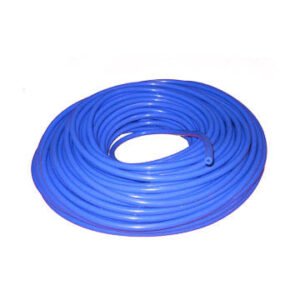If you’re looking for bespoke coolant hoses, you might be wondering what material is appropriate for your particular use. In this post, we’ll look at the various materials available for bespoke coolant hoses and help you decide which one is best for you.
Custom Coolant Hose Material Options
Rubber is a popular material for coolant hoses because it is flexible, resilient, and resistant to a wide variety of temperatures. Because of its chemical and thermal resistance, synthetic rubber, such as EPDM or Viton, is frequently used for bespoke coolant hoses.
Gomma, d'altra parte, may not be the greatest solution for high-pressure applications or usage with extremely harsh coolants.
Material Options for Custom Coolant Hoses
- Gomma: Rubber is a popular choice for coolant hoses because it’s flexible, durevole, and can withstand a wide range of temperatures.
Synthetic rubber, such as EPDM or Viton, is often used for custom coolant hoses because it offers excellent resistance to chemicals and heat. Tuttavia, rubber may not be the best choice for high-pressure applications or use with very aggressive coolants. - PVC: PVC (cloruro di polivinile) is another popular material for coolant hoses. It’s lightweight, flessibile, e facile da installare. PVC is also resistant to many chemicals and can withstand temperatures up to 140°F (60°C).
Tuttavia, it may not be suitable for high-pressure applications or use with very corrosive coolants. - Poliuretano: Polyurethane is a versatile material that can be formulated to meet specific requirements for custom coolant hoses. It’s lightweight, flessibile, and can withstand temperatures up to 250°F (121°C).
Polyurethane is also resistant to many chemicals and can be formulated to have a high-pressure rating. It’s a good choice for applications where high temperatures and chemical resistance are important. - Silicone: Silicone is a high-performance material that’s often used for custom coolant hoses in applications where temperature and chemical resistance are critical.
It can withstand temperatures up to 500°F (260°C) and is resistant to many aggressive coolants. Silicone is also flexible and easy to install, making it a popular choice for custom coolant hoses.
Selecting the Best Material for Custom Coolant Hoses
How can you choose the proper material for your application now that you’ve learned about the various materials that may be utilized for bespoke coolant hoses? Here are a few things to think about:
- Operating Temperature: The operating temperature of your coolant system will play a big role in determining which material is best for your custom coolant hoses. If you’re dealing with very high or very low temperatures, you’ll need a material that can withstand those extremes.
- Valutazione della pressione: The pressure rating of your coolant system will also be important. If you need a high-pressure rating, you’ll want to choose a material that can withstand the pressure without compromising its performance.
- Resistenza chimica: The type of coolant you’ll be using will also influence your material choice. Some coolants are more aggressive than others, so you’ll need a material that can withstand the chemicals in your coolant.
- Flexibility and Durability: You’ll also want to choose a material that’s flexible and durable. Custom coolant hoses need to be able to withstand the rigors of your application, including bends, twists, and other types of stress.
Conclusione
Custom coolant hoses are an essential part of any coolant system. The material you select will be determined by several aspects. Including the working temperature, valutazione della pressione, resistenza chimica, flessibilità, e durata.
By considering these criteria, you can select the best material for your bespoke coolant hoses. And ensure that they operate smoothly in your application. Make sure the material you choose is appropriate for your purposes, whether it’s rubber, PVC, polyurethane, o silicone.





